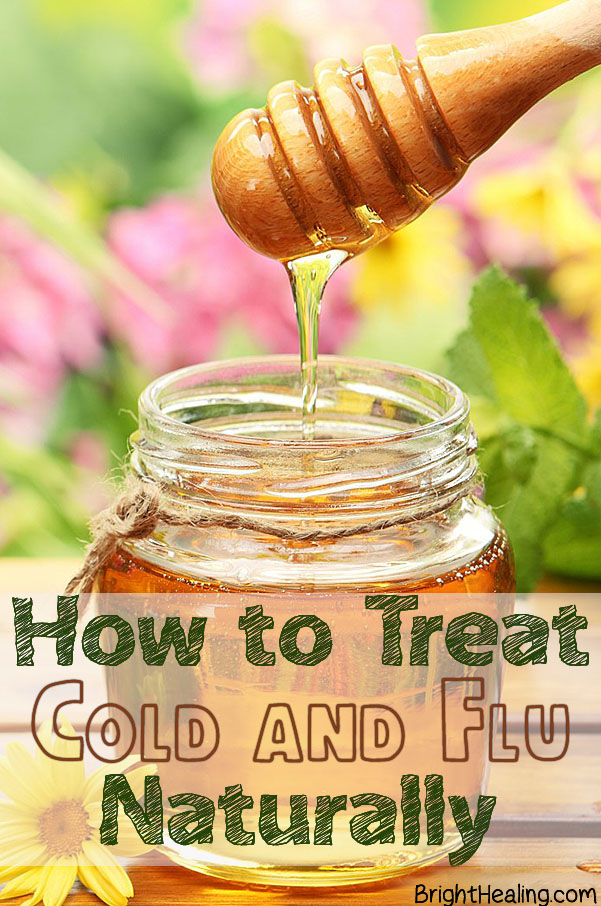Colds are a leading cause of doctor visits and missed days from work and school, and this season is no exception. Americans suffer from approximately 1 billion colds per year, or about two to four colds per year for the average adult.
Is it a common cold or the flu? If your symptoms are above the neck—congestion, sore throat, sneezing, coughing—you probably have a cold. If you have all those symptoms plus a fever of 38.8˚C (102˚F) or more, headache, muscle aches, extreme fatigue, diarrhea, nausea or vomiting, you’re more likely to have the flu.
Here are some tips that can help you relieve sympoms of flu and cold using natural remedies
Blow Your Nose Often – and the Right Way
It’s important to blow your nose regularly when you have a cold rather than sniffling mucus back into your head. But when you blow hard, pressure can cause an earache. The best way to blow your nose: Press a finger over one nostril while you blow gently to clear the other. Wash your hands after blowing your nose.
Treat That Stuffy Nose With Warm Salt Water
Salt-water rinsing helps break nasal congestion, while also removing virus particles and bacteria from your nose. Here’s a popular recipe:
Mix 1/4 teaspoon salt and 1/4 teaspoon baking soda in 8 ounces of warm water. Use a bulb syringe or nasal irrigation kit to squirt water into the nose. Hold one nostril closed by applying light finger pressure while squirting the salt mixture into the other nostril. Let it drain. Repeat two to three times, then treat the other nostril.
Take a Steamy Shower
Steamy showers moisturize your nasal passages and relax you. If you’re dizzy from the flu, run a steamy shower while you sit on a chair nearby and take a sponge bath.
Stay Warm and Rested
Staying warm and resting when you first come down with a cold or the flu helps your body direct its energy toward the immune battle. This battle taxes the body. So give it a little help by resting.
Chicken Soup
Chicken soup is a time-honoured remedy that is tried, tested and true. Chicken soup stops certain white blood cells (neutrophils) from congregating and causing inflammation, preventing large amounts of mucus from being produced. The hot soup also thins the mucus. Adding freshly chopped garlic to your soup gives the system a powerful boost. While garlic kills germs outright, it also appears to stimulate the release of natural killer cells, which are part of the immune system’s arsenal of germ-fighters. Spike your soup with red (chili) pepper flakes to increase the broth’s decongestant power.
Real Raw Honey
Raw honey is fantastic for colds as it soothes coughs, is an anti-viral, anti-bacterial, and anti-fungal, and helps with digestion.
The Throat Soother
2 tablespoons organic coconut oil (where to buy coconut oil)
2 tablespoons raw honey
1 teaspoon organic ground cinnamon
Instructions: mix with the powerhouse coconut oil (for some great lauric acid), ground cinnamon (to also help sooth the throat), and raw honey together until a paste forms. Eat the goodness throughout the day and soothe the throat!
Echinacea
One particular herb has recently had a lot of press coverage and marketing as a ‘new’ cure for colds. Echinacea has in fact been used by America Indians for hundreds of years.
A key thing with echinacea is that the quality of the actual herbal echinacea is vitally important. This leads on to the question of whether echinacea can be the answer.
The only way to know if something like echinacea can help or not is to try it. But do not buy a cheap, watered down echinacea or one that is old. It will be a waste of money and you will be disappointed. Ensure the herb is fresh.
Colds can take hold for many reasons and things such as stress, lack of sleep, poor nutrition, or anxiety or worry over something can all make you more susceptible. So if these other factors are not also looked at and handled, a cold can drag on.
echinaceaEchinacea is originally from the North America Plains, but varieties of the species are now found on most continents. Echinacea increases levels of properdin in the body. Perpedin is a chemical which stimulates some of the internal protective mechanisms the immune system responsible. Importantly it seems to stregthen the defence mechanisms which protect the body against bacterial attacks and viruses.
Its anti-bacterial effect makes it a good herb for treating many viral and bacterial infections. Echinacea is also an excellent blood cleanser, it helps to sweep dead cells and other debris through the channels of the lymphatic system. And dispatches white blood cells to fight the infection.
The best test to determine if you are taking a good, high strength echinacea is the tongue test. After you have taken the tincture, the back of your tongue should feel numb or tingly. This feeling will soon pass, but you know you are using a good quality product. So when you feel the cold coming on – reach for the echinacea tincture. It is important to try to take echinacea before the full onset of a cold or flu to give the best chance of a swift recovery.
Ginger
Ginger is another of natures’ antiviral herbs. It contains nearly a dozen antiviral compounds. Ginger is pain relieving, antiseptic and antioxidant. It is valuable for preventing and treating colds, sore throats and inflammation of mucus membranes.
Ginger reduces pain and fever and has a mild sedative effect that will encourage rest. And it is tasty! (with no lingering odours!) Drink a tea, or soak fresh ginger in hot water, take as a tincture and include it in your food. Ginger is also delicious in a fruit smoothy (a mix of soft chilled fruits put in a blender)
Supplements
Some of the more helpful ones for cold and flu are:
– Vitamin C: A very potent antioxidant; use a natural form such as acerola, which contains associated micronutrients.
– Oregano Oil: The higher the carvacrol concentration, the more effective it is. Carvacrol is the most active antimicrobial agent in oregano oil.
– Propolis: A bee resin and one of the most broad-spectrum antimicrobial compounds in the world; propolis is also the richest source of caffeic acid and apigenin, two very important compounds that aid in immune response and even fight cancer.
– A tea made from a combination of elderflower, yarrow, boneset, linden, peppermint and ginger; drink it hot and often for combating a cold or flu. It causes you to sweat, which is helpful for eradicating a virus from your system.
– Olive leaf extract: Ancient Egyptians and Mediterranean cultures used it for a variety of health-promoting uses and it is widely known as a natural, non-toxic immune system builder.

